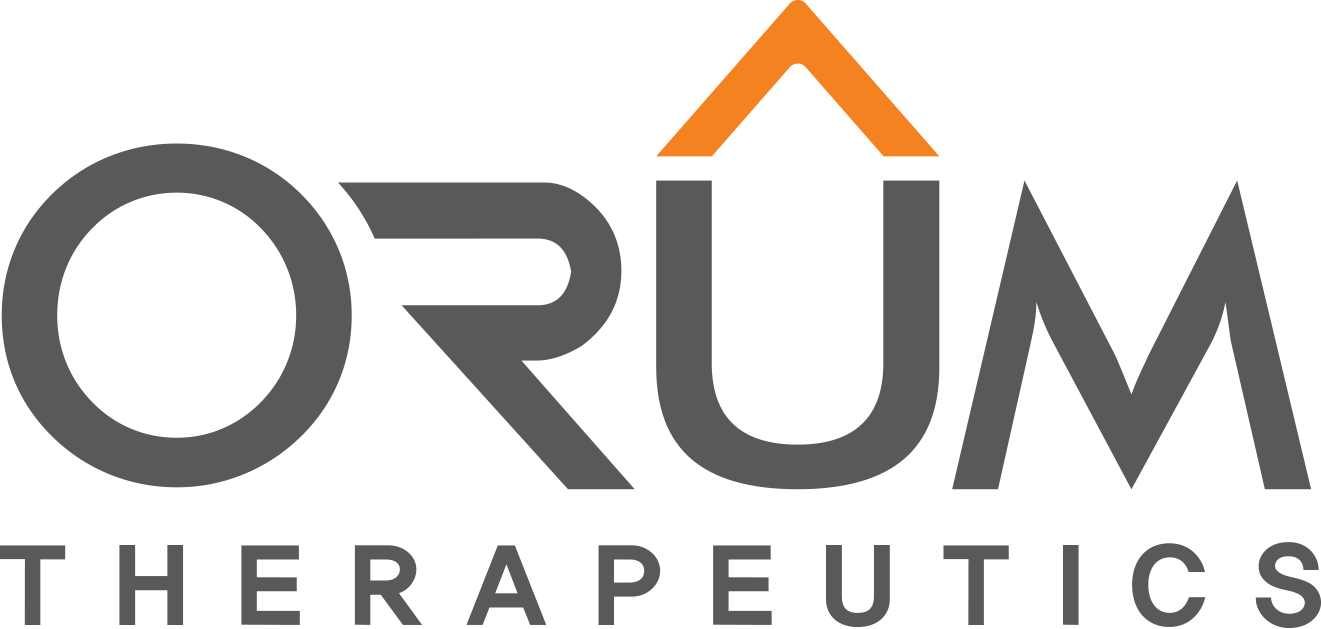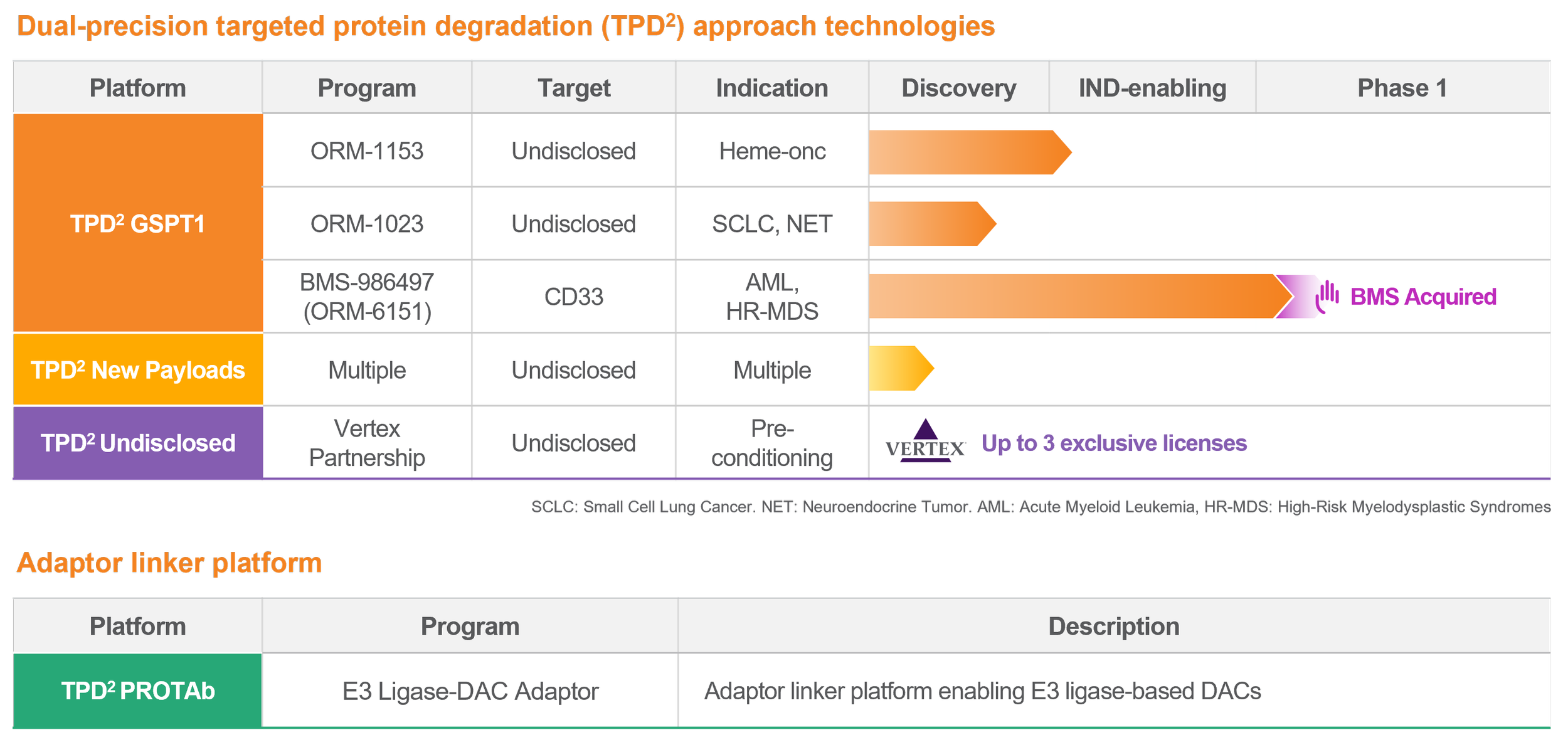Multiplatform Pipeline
Transactions & Partnerships
In November 2023, Bristol Myers Squibb acquired ORM-6151/BMS-986497 at a total deal value of $180 million. ORM-6151/BMS-986497 is a first-in-class, anti-CD33 antibody-enabled GSPT1 degrader initially developed by Orum Therapeutics for the treatment of acute myeloid leukemia (AML) and other CD33-expressing malignancies.
In July 2024, Orum entered a multi-target license and option agreement with Vertex Pharmaceuticals. Vertex will use Orum’s TPD² technology for the discovery of novel targeted conditioning agents for use with gene editing and has the right to take up to three options.
Partnering with Orum
Are you interested in any of our pipeline assets or have targets and antibodies that might work well with our GSPT1 degrader payloads? Or have you developed degraders that need a better therapeutic index via antibody delivery?
Orum is ready to discuss a variety of different collaboration possibilities across our platform technologies and assets.
Please contact us and let us know how we can work together.
Meet the Orum team at following conferences in 2H 2025:
Laguna Biotech CEO Forum - October 12–14
BioCentury-BayHelix China Healthcare Summit - October 22-24
BIO Europe Fall - November 3-5
ASH Annual Meeting - December 6-9




